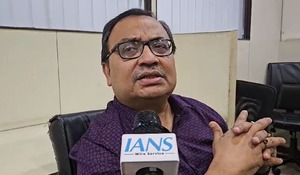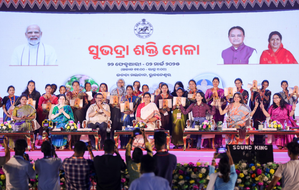TN: ASI to begin excavation at Amoor in Chengalpattu
Chennai, Nov 4 (IANS) The Archaeological Survey of India (ASI), Chennai Circle, will commence excavation work soon at Amoor, a protected site near Thiruporur in Tamil Nadu’s Chengalpattu district.
Sources told IANS that the excavations are most likely to commence in January 2025.
The ASI had previously identified a megalithic burial site in the lower Palar valley, which contains ancient cists and cairns.
This site, previously managed by the forest department, has since been declared a protected site by the ASI.
Sources said that the burial site dates back approximately 2,000 years.
The ASI’s headquarters has already approved a proposal from its Chennai Circle to begin excavations, which are set to start in phases following the Northeast Monsoon season.
The ASI has previously conducted excavations on sites along the Palar River. In 2007, ASI excavations at Siruthavur uncovered megalithic sarcophagi, iron objects, and carnelian beads.
Meanwhile, the Tamil Nadu State Department of Archaeology (TNSDA) has requested permission from the ASI and the Central government to initiate excavations at four new locations this year: Marungur in Cuddalore, Kongalnagram in Tiruppur, Thirumalapuram in Tenkasi, and Chennanur in Krishnagiri.
Applications for these projects have been submitted to the Central Advisory Board of Archaeology (CABA), and approvals are anticipated soon.
In a notable 2023 excavation, the TNSDA discovered 2,030 graffiti marks, including four with Tamil-Brahmi inscriptions, at Thalukarpatti in Tirunelveli district.
The Tamil Nadu government is now conducting a comparative study to analyse these graffiti marks in relation to signs from the Indus Valley Civilization (IVC).
The TNSDA has also sought renewed permission to continue excavations at four significant existing sites, including Keeladi, a Sangam Era site with evidence of a thriving industrialised settlement from at least 2,600 years ago on the banks of the River Vaigai.
The department is also pursuing fresh licenses for additional excavations at Kilnamandi (Tiruvannamalai), Vembakottai (Virudhunagar), and Porpanaikottai (Pudukkottai). Excavations at Keeladi will enter their 10th phase, while Vembakottai will commence its third phase, and Kilnamandi and Porpanaikottai will enter their second phases.
Sources within the Tamil Nadu Archaeology Department revealed plans for a curated museum to exhibit ceramics and other finds from various archaeological sites across the state.
Excavation work in Tamil Nadu generally runs from February to September, followed by detailed report preparation. This upcoming season, archaeologists will focus on seeking evidence of high-tin bronze artefacts in Thirumalpuram, Iron Age remnants in Marungur, and Neolithic-period relics in Chennanur.
The state conducted excavations at eight sites in 2022-2023, during which nearly 10,000 antiquities were uncovered, including terracotta figurines, glass beads, carnelian beads, iron tools, a bronze tiger figurine, gold items, and punch-mark coins.
–IANS
aal/dan



